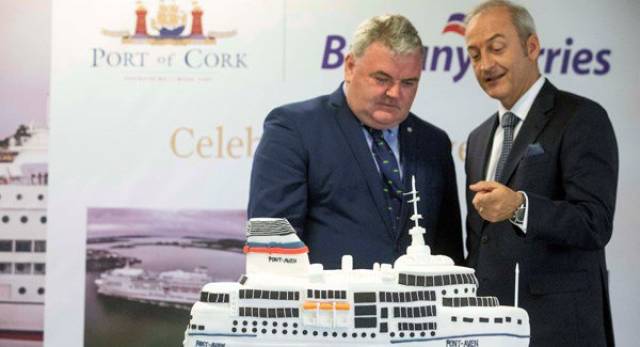#FerryNews - Trying to help people is Britanny Ferries with those who booked with Irish Ferries WB Yeats, but may not be able to accommodate many because they are nearly full for July and August.
As the Irish Examiner writes, Brittany Ferries chief executive Christophe Mathieu said some people who had booked trips to France with Irish Ferries had rebooked with his company for the Cork-Roscoff route, but space is now nearly at a premium.
Around 19,000 people have had their summer sailings to France cancelled due to a delay in the delivery of a new ferry to Irish Ferries.
Mr Mathieu made the comments yesterday at a special reception in Ringaskiddy, Co Cork, which marked 40 years since Brittany Ferries opened its Cork-Roscoff service.
“Brittany Ferries was only five years old when we launched services linking Roscoff and Cork back in 1978. In our first year of operations we carried just under 22,000 passengers on the MV Armorique,” said Mr Mathieu.
The newspaper had more here on the new Ireland-Spain service and the impact of Brexit.


























































